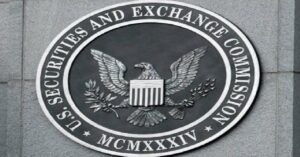The Telegram SEC fight over whether “Gram” tokens are securities progressed when Telegram ‘answered’ in federal court. The move foretells a lengthy battle, something Telegram surely hoped to avoid. Telegram’s Answer spotlights myriad government crypto failures. Among them, mixed signals by officials, selective enforcement, policymaking by staff, unclear rules, and bureaucrats protecting agency power. Regardless of the SEC Telegram outcome, without changes America’s tech advantage will shrink whilst sinecures rise.

Telegram’s two defenses against SEC enforcement
Telegram has two defenses but only uses one lest they admit clandestine attempts to skirt rules. Officially Telegram complains SEC rules are vague, scattershot, and violate due process. “Plaintiff has engaged in improper ‘regulation by enforcement’ in this nascent area of the law, failed to provide clear guidance and fair notice of its views as to what conduct constitutes a violation of the federal securities laws, and has now adopted an ad hoc legal position that is contrary to judicial precedent and the publicly expressed views of its own high-ranking officials.”
Yes. Telegram’s Answer covers many ad hoc apparatchik games. The three horseman of reaction, Shallow-End Jay Clayton, Bill the Butcher Hinman, and NPC Valerie Szczepanik play hot potato whilst Crypto Mom Hester Peirce stares incensed. Risk-averseness, so common to our three million “public servants,” isn’t bad with nuclear policy, global warming, or Ukraine favors. But here, their actions matter. The future American economy and our place as world’s chief innovator is at stake. Whether a court accepts SEC buck passing given DAO and NPC Valerie’s Dreadful Guidance is unclear. But the government has good odds.
Telegram SEC fight centers on decentralization
Telegram’s unspoken defense is “decentralization.” Decentralization isn’t in any court case or statute. Corp Fin Director Bill the Butcher created it. And while it makes sense, it lacks the analytical rigor crypto entrepreneurs need.
Bill the Butcher announced this policy last year:
The digital asset itself is simply code. But the way it is sold [determines whether it is a security.] But this also points the way to when a digital asset transaction may no longer represent a security offering. If the network on which the token or coin is to function is sufficiently decentralized—where purchasers would no longer reasonably expect a person or group to carry out essential managerial or entrepreneurial efforts—the assets may not represent an investment contract. Moreover, when the efforts of the third party are no longer a key factor for determining the enterprise’s success, material information asymmetries recede” and “the ability to identify an issuer or promoter to make the requisite disclosures becomes difficult, and less meaningful.”
Crypto entrepreneurs embraced this statement lacking much else, save NPC Valerie’s Dreadful Guidance. When Congress pressed, Shallow-End Jay backed Bill the Butcher without actually using the word.

Crypto startups see decentralization as the only way around SEC compliance
Lawyers have earned millions working Bill the Butcher’s statement into the current capital framework. Most use Reg D for SAFTs but whether this covers the actual tokens is unclear.
Blockstack is the only successful Reg A+ offer thus far. In its offering circular it stated it expects to be decentralized and leave securities compliance within a year. Kik took a different route. It claimed its “Kin” tokens were already decentralized. And thus, like Bitcoin or Ethereum could avoid SEC oversight.
Telegram chose the Kik route, arguing the potentially disbursed 220 billion Grams would be de facto decentralized, but the SEC stopped it. As one CoinDesk commentator stated: “Last year, messaging platform Telegram funded the construction of its TON blockchain with a private placement which guaranteed future allocation of Gram tokens, which of course would be decentralized enough to not need to go through a securities registration. The SEC was not convinced.”
SEC filed against Telegram before it could claim decentralization
And the SEC laid bare Telegram’s plan in its temporary restraining order: “Indeed, by definition, the TON Blockchain can only become truly decentralized (as contemplated and promoted in the Offering Documents) if Grams holders other than the original Grams purchasers actually stake Grams… Stated differently, if the original Grams purchasers alone all immediately staked their holdings, the TON Blockchain would be centralized rather than decentralized and, therefore, subject to misuse and majority attacks.” [original emphasis].
Thus, both sides skate decentralization. Telegram demurs because it would tacitly admit it tried to skirt SEC mandates. The SEC avoids it because it’s somewhat unofficial.

Telegram SEC fight shows problems with government crypto policy
But whatever happens, the government’s inability to explain its policy is a fiasco.
- Relying on outdated precedent: SEC Enforcement defines securities from the 1946 Howey case. That worked for orange groves, but the world has changed slightly since mid-20th Century. Judicial precedent restrains the SEC, but also empowers it. The SEC likes Howey because it yields broad discretion.
- Guidance that confuses more than clarifies: Crypto entrepreneurs have clamored for clear rules beyond outdated cases. The SEC responded with NPC Valerie’s Dreadful Guidance. It took 6-months to complete. And likely cost taxpayers upwards of a quarter-million dollars. And it only worsened things adding more factors to the Howey Test, without any inkling of weight or even if that was all. Anyone outside “public service” would have been fired for such waste.
- Insistence entrepreneurs get permission: Not only does the SEC not give clear rules but it insists entrepreneurs ask permission through lengthy negotiations or laborious no-action letters. These letters may take years or not come at all. And others can’t use them as precedent. It also favors insiders, those represented by major law firms or with staff relationships.
- Bureaucrats make policy without responsibility: Every document, speech, or murmur by an SEC functionary comes with disclaimers. No one takes responsibility or accountability. Bill the Butcher has a doctrine named for him—heady stuff—but ask if his statements represent the SEC. NPC Valerie travels the country on taxpayer dimes, receives VIP treatment at conferences. Ask her to opine beyond NPC fashion ‘Howey, Howey, Howey.’
- Real guidance comes through enforcement: The SEC can bankrupt a startup. It has no shareholders, no timelines, no need for profit, subpoena power, and essentially an unlimited budget. Try and cross them. They dare you.
SEC functionaries have hijacked crypto regulation
NPC Valerie summed the government’s crypto stance in a short yet revealing comment. “The lack of bright-line rules allows regulators to be more flexible.”
Just so, as these pages have opined:
This is true but has other effects. It leaves regulators with massive discretion. This gives them enormous power over the economy with no responsibility for the results. It mandates entrepreneurs approach them hat-in-hand for permission. And it makes them sought after speakers on the conference circuit.
But it’s a zero-sum game. Every unit of power Ms. Szczepanik reserves for herself and her colleagues removes it from job producers. Indeed, every ambiguous pronouncement shunts billable hours to lawyers and compliance professionals instead of research or marketing. Those building tomorrow’s economy need the flexibility not bureaucrats. They will power our future long after Ms. Szczepanik takes her professorship or retires to a nonprofit.
Too few call out dreadful SEC crypto policy
A few, but only that, recognize the absurdity. Most prominently is Commissioner Hester Peirce, aka Crypto Mom. As a lone voice, she has repeatedly warned about this path:
The SEC staff recently issued a framework to assist issuers with conducting a Howey analysis of potential token offerings. The document is a thorough 14 pages. It points to features of an offering and actions by an issuer that could signal that the offering is likely a securities offering. If this framework helps issuers understand what the different Howey Factors might look like in an ICO context, it may be valuable. I am concerned, however, that it could raise more questions and concerns than it answers.
While Howey has four factors to consider, the framework lists 38 separate considerations, many of which include several sub-points. A seasoned securities lawyer might be able to infer which of these considerations will likely be controlling and might therefore be able to provide the appropriate weight to each. Whether the framework gives anything new to the seasoned securities lawyer used to operating in the facts and circumstances world of Howey is an open question. I worry that non-lawyers and lawyers not steeped in securities law and its attendant lore will not know what to make of the guidance.
Pages worth of factors, many of which seemingly apply to all decentralized networks, might contribute to the feeling that navigating the securities laws in this area is perilous business . . .

Congress could act to reign in SEC intransigence
Representative Warren Davidson (R-OH) stated:
Regulation by enforcement [has] all the charm and inefficiency of third-world power structures.
. . .
The SEC is doing a complete patchwork of regulation. No one knows where they’re going. They’re literally told if you want to launch a token, whatever you think you want to do with it, come check with the SEC first. . .. And you can grovel. If you grovel well enough, then we’ll give you a no-action letter. You have hundreds of companies waiting on no-action letters. They’ve approved two.
You can’t raise capital while you’re waiting for that.
And in the best exchange in a recent SEC Congressional hearing, Ted Budd (R-NC) mocked NPC Valerie’s Dreadful Guidance, which is a poster child for bureaucratic drivel.
Budd: In April Fin Hub published a framework for investment contract analysis of digital assets which included 60 plus factors for determining whether or not the SEC would consider a digital asset a security. In a statement released alongside your framework your colleagues Bill Hinman and Valerie Szczepanik indicated that the framework is not intended to be an exhaustive overview of the law. But rather an analytical tool to help market participants . . . [H]as the guidance helped resolve their most important questions?
Crypto Mom: [No]
Budd: So last question, when can market participants expect and exhaustive overview of the law so that they can get the regulatory certainty required to continue to innovate and create American jobs.
The world keeps spinning while the SEC ensures America falls behind
But sound bites won’t change Commission practice. The Telegram SEC fight is only a symptom. Indeed, the SEC embodies the administrative state run amok—the Machine whose highest priority is turf protection and DC cache. The political and judicial branches must cabin administrative agencies. Or future Americans will be tech colonized by those less concerned about Washington chatter or who retires to an Ivy League teaching post.








